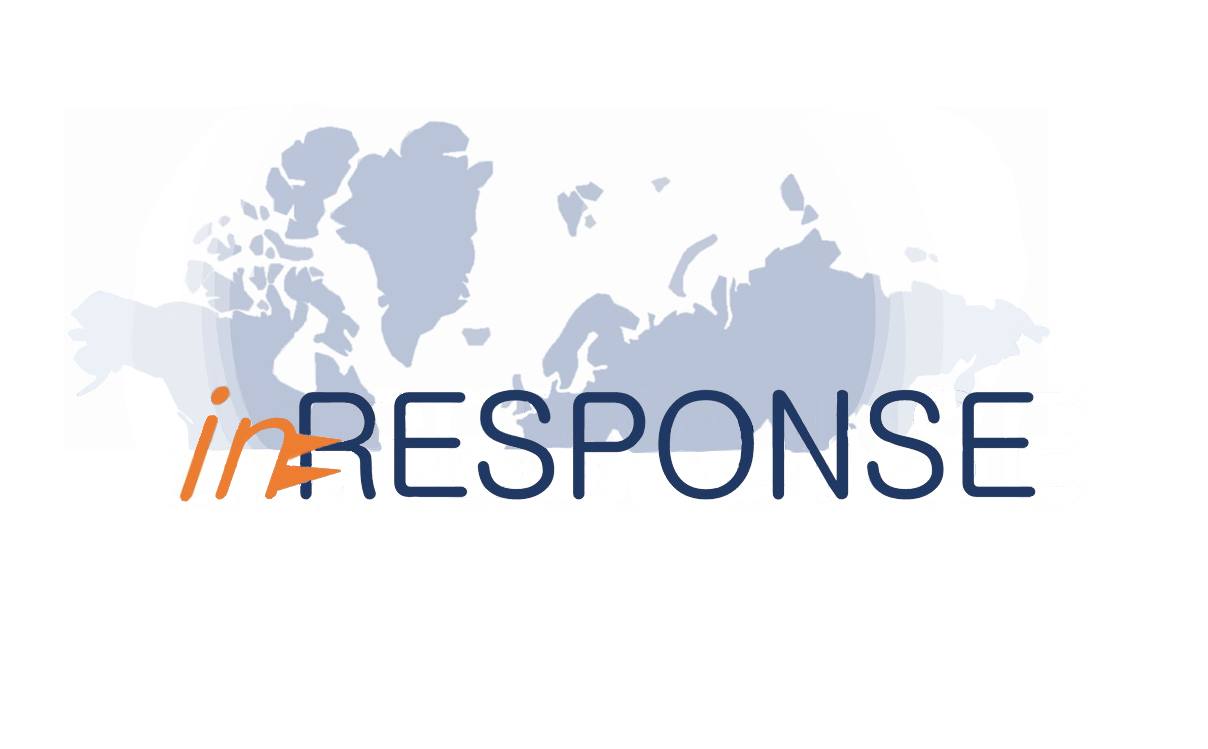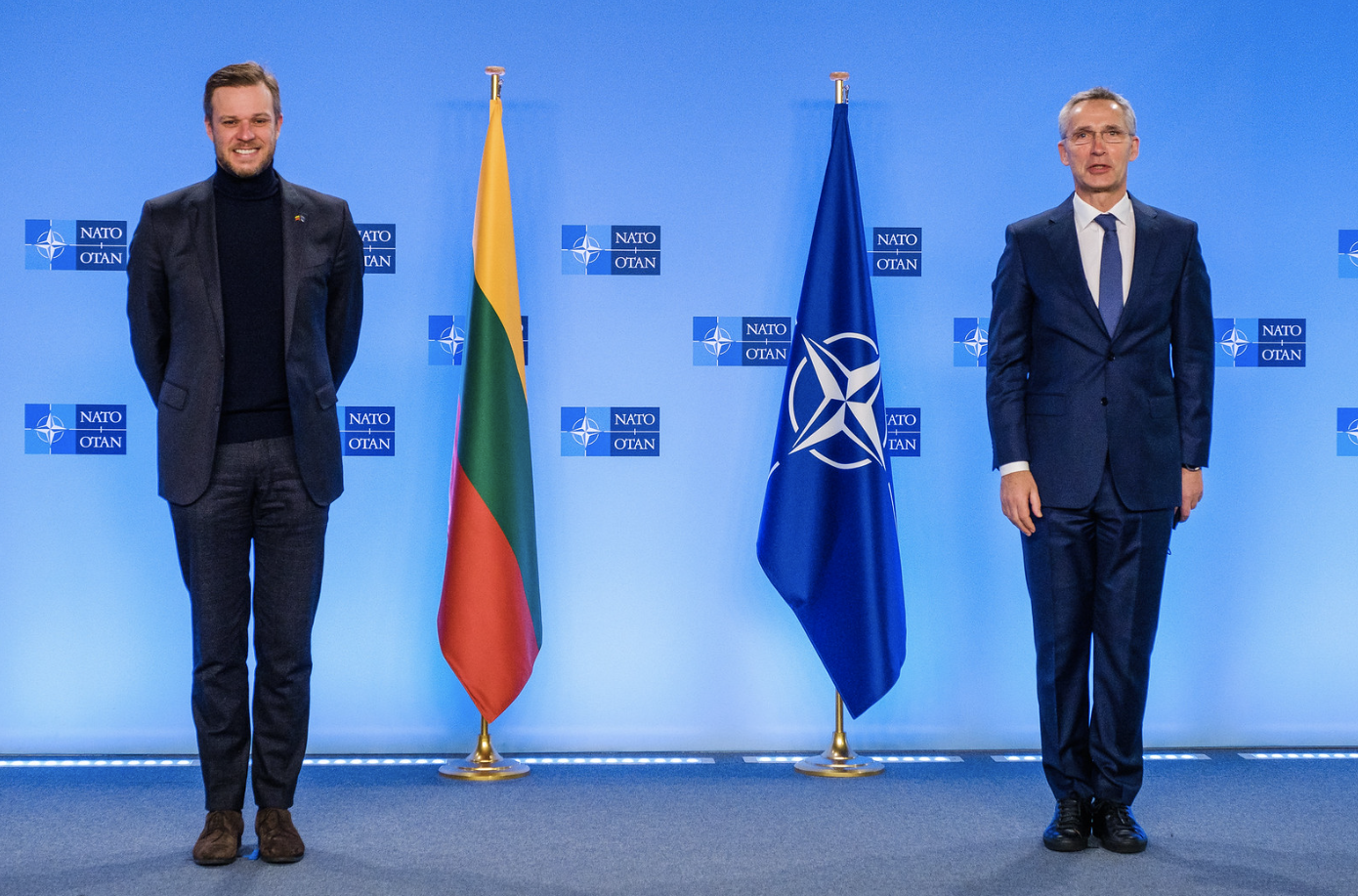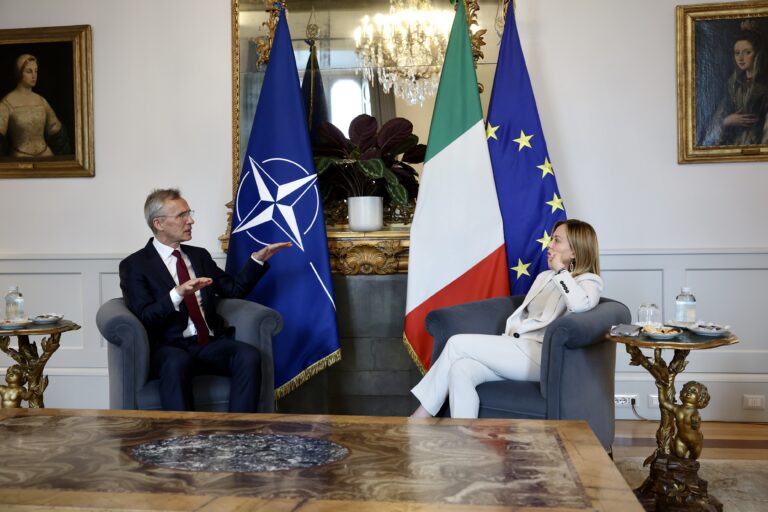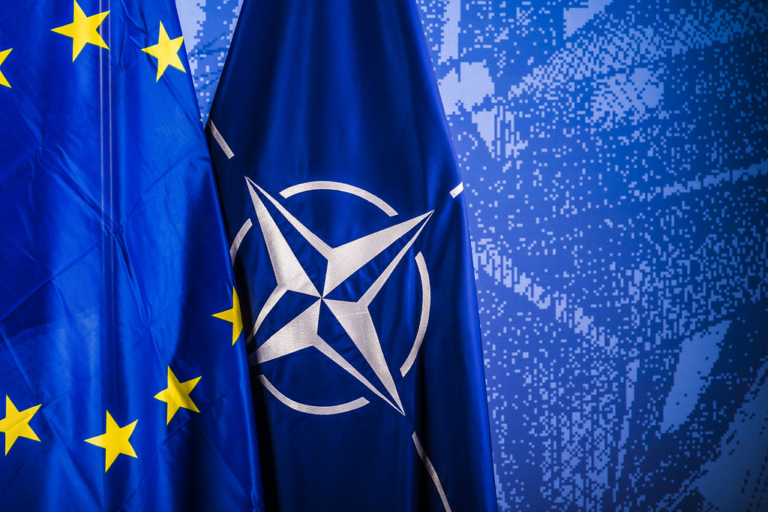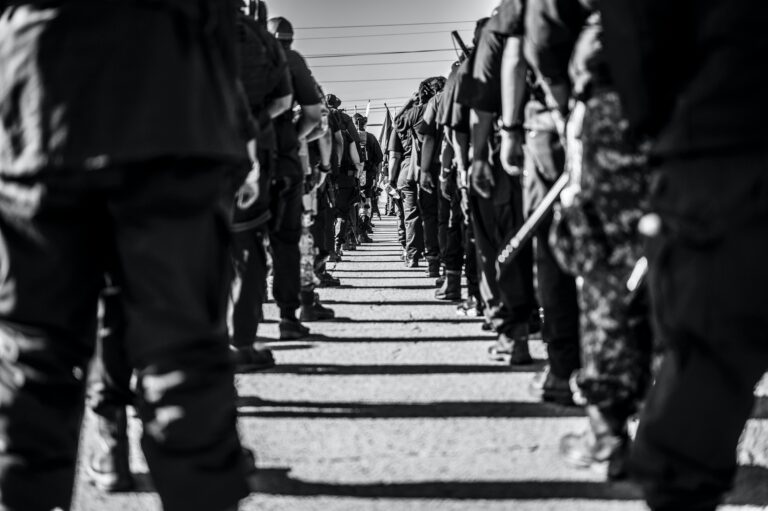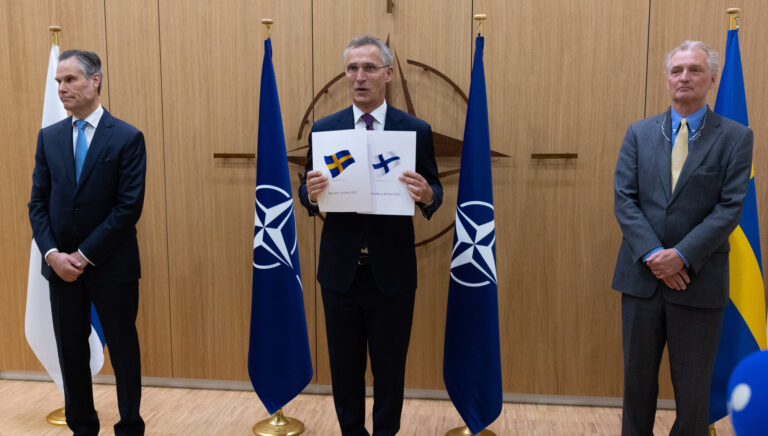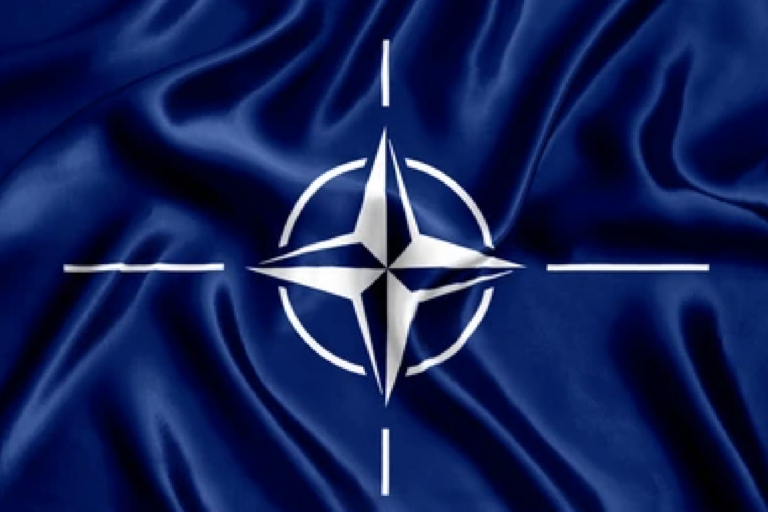The Lithuanian Perspective on the Role of Small States in Strengthening NATO Security
Dr Danguole Bardauskaite, Lecturer at the General Jonas Zemaitis Military Academy of Lithuania
Lithuania’s history of Soviet occupation and its subsequent independence in 1990 led to a strategic decision to pursue membership in both the EU and NATO. Rather than opting for short-term solutions that might have been easier economically—especially given Lithuania’s economic dependence on former Soviet republics—the country chose a path based on a long-term vision and a commitment to a specific value system. Despite the lasting impacts of occupation on Lithuanian political culture, the desire to align with Western values remained strong. This commitment is reflected in Lithuania’s policy within NATO and prompts reflection on the role of small states in strengthening NATO security.
The Strategic Importance of NATO for Lithuania
Lithuania’s geographic position on NATO’s eastern flank, bordering the Russian exclave of Kaliningrad and Belarus, plays a crucial role in the strategic importance of NATO membership. This proximity to potential threats helps explain why both the Lithuanian government and 89 percent of Lithuanian population are supporters of NATO membership. Following Russia’s full-scale invasion of Ukraine, Lithuania’s commitment to NATO has become a top priority for the government and most political parties, many of whom believe the country must increase its defence investments. Some even advocate for defence spending to reach 4 percent of GDP.
Currently, Lithuania allocates 3.2% of its GDP to defence spending. However, given the political significance that the support of smaller states holds for larger countries, it is important to recognize Lithuania’s multifaceted contribution to NATO. Lithuania has participated in NATO missions in Afghanistan (ISAF), Iraq, and the Kosovo Force (KFOR). It serves as a host nation for Enhanced Forward Presence and Baltic Air Policing missions, while also undertaking efforts to modernize its armed forces. In addition, Lithuania is enhancing its border security and surveillance as well as working on cyber resilience. Nonetheless, although not all of its efforts for common NATO security are listed here, the country still remains more of a recipient of security guarantees than a provider.
In light of its status as a security receiver, a small country like Lithuania may appear powerless and reliant on the goodwill of its allies who are committed to one another through NATO. There is a plethora of literature which portrays small states as helpless pawns within alliances dominated by powerful nations. However, perspectives on this are evolving. Increasingly, scholars, analysts and international relations observers highlight examples of small states asserting their agency on the global stage. Although we should not be naïve and remember that “the overarching behaviour pattern of small states would definitely remain the same” – namely, “to utilise all possible means to pursue their national interests”– small states can help bring some balance to power politics within the Alliance. In this context, Lithuania exemplifies how small states can play a role in holding organizations like NATO together.
Value-based foreign policy and NATO security
The value-based foreign policy of Lithuania became an international focus after the decision to open a Taiwanese Representative Office, which was criticized even within Lithuania itself. Criticism became especially pronounced after the secondary sanctions introduced by China. In this context, the value-driven foreign policy is often associated with the coalition led by the Homeland Union-Christian Democrats, along with the Liberal Movement and Freedom Party. This coalition has emphasized the importance of aligning Lithuania’s foreign policy with core Western values in their program, focusing on freedom and democracy as guiding principles. Nevertheless, scholars claim that value-based approaches are not a novelty in Lithuanian foreign policy: “from 2014 onwards, Lithuanian foreign policymakers have framed an official discourse around the country’s obligation, as a tireless defender of European values and norms”. Although Lithuania’s value-based foreign policy may seem somewhat naïve, analysts have evaluated it as “less idealistic than it might initially have appeared,” noting its underlying motive to strengthen ties with the United States by aligning with U.S. policy toward China.
Looking at this example and considering Lithuania’s firm stance towards Russia’s aggression and its support to Ukraine, one might claim that Lithuania may be a stronger advocate for NATO’s original values than some of its longer-standing members. While NATO has faced criticism, with certain voices labelling it as “obsolete” or “brain dead”, and some of the older members expressing doubts about the organisation’s ability to perform its tasks, countries like Poland, Lithuania, Latvia, Estonia and Romania have consistently affirmed its importance.
One must acknowledge that criticism towards NATO has encouraged many countries to rethink their defence spending and to be more committed. However, as previously indicated, member states are increasingly inclined to prioritize national decisions, even when these choices may conflict with NATO’s collective objectives. Smaller states, like Lithuania, are particularly sensitive to the risks of undermining NATO’s solidarity, especially given the opportunistic adversaries who may exploit internal divisions. Consequently, the Baltic states actively promote political cohesion and emphasize shared values, often with a sense of urgency due to the immediacy of the threats they face.
NATO’s Internal Divisions and Lithuania’s Vision for NATO’s Future
A significant challenge to NATO’s solidarity and the difficulty in finding common ground among allies stems not only from differences in pragmatic interests but also from the diverse identities within NATO: “the fundamental fissures between Western European, Eastern European, and American NATO have not been resolved.” Lithuania and the Baltic states often strive to prove their value within NATO, advocating for their perspectives on Russia’s aggression to be taken seriously.
Meanwhile, some European countries are considering alternative or complementary approaches to European security, occasionally exploring frameworks like strategic autonomy for “soft” security purposes. In contrast, Lithuania remains a strong proponent of NATO as the central pillar of defence. Although it values the EU’s growing role in regional security, Lithuania views NATO’s transatlantic link as irreplaceable, especially in countering threats from Russia and Belarus. This conviction underscores Lithuania’s commitment to a unified NATO and highlights the role of small states in upholding the Alliance’s relevance, especially as alternative ideas arise in response to shifting U.S. domestic politics and concerns over a potential reduction in American commitment to NATO.
New NATO members like Sweden and Finland are often perceived as more established within the Alliance compared to the Baltic states, reflecting broader perceptions of “Western” versus “Eastern” European identities. Increasingly, Lithuanian politicians and citizens express solidarity with the West, using phrases like “We, in the West.” This language signals Lithuania’s desire to fully belong to the “West,” after decades of effort by the Baltic states to align with Western ideals, often with a level of idealism not always seen in countries with no recent history of war or occupation.
Lithuania’s focus on democratic values and commitment to NATO are seen across the majority of political parties, especially mainstream ones, even though criticisms directed to each other are inevitable due to election cycles and ideological differences. The shared priority of security unites most of the parties, reinforcing a vision of NATO membership that positions Lithuania as a vital part of the Alliance, committed to upholding its foundational purpose and reminding others of its core mission. Therefore, it is important to recognize that the contributions of small states to NATO’s security extend beyond financial and material capabilities, playing a crucial role in ensuring the alliance’s unity, which is founded on shared values and common threats.
Picture. Source: Flickr, NATO – Creative Commons.
The views, thoughts, and opinions expressed in the blog posts belong solely to the authors, and are not necessarily representative of the Institut Barcelona d’Estudis Internacionals (IBEI) nor the Spanish Ministry of Science and Innovation. The content provided through our blogs is for informational purposes only. Readers are encouraged to consider the context and research behind the viewpoints shared within each blog post.
